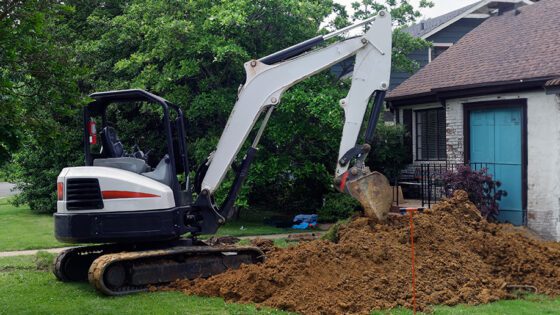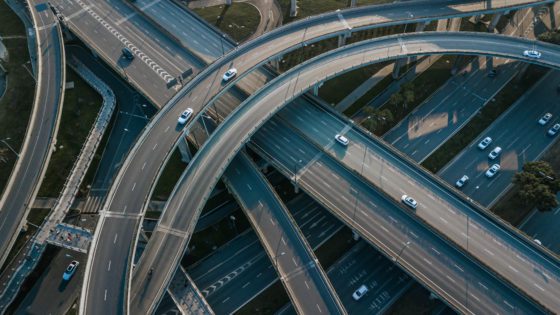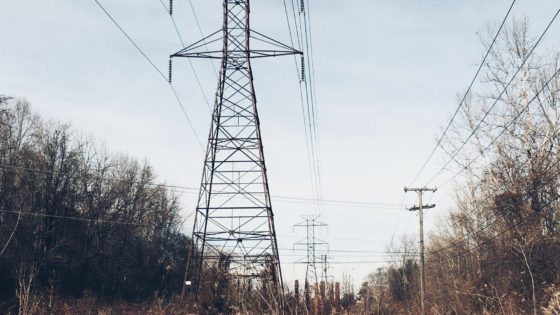COVID-19 leads to less traffic in North Carolina
As I drove on I-40 between Durham and Raleigh, I remember how surreal it felt. The sun was out, and the temperature was crisp, but despite being almost 5 P.M. on a Tuesday, there were few other cars around me. Usually I would be sitting in stop-and-go traffic for an hour, but with Governor Roy Cooper’s stay-at-home order in effect, I was one of the few “essential” people still on the road. Suddenly, instead of 10,000 cars on the interstate, there were merely a few dozen. This was one of the first times I had seen the extensive impact of the global pandemic caused by COVID-19 with my own eyes.
Less traffic results in lower ncdot revenue
Many of the effects of COVID-19 have been very visible: weddings are smaller, gyms have reduced occupancy, and we aren’t stopping to fill up our gas tanks nearly as frequently. With a substantial increase in layoffs and many workers taking advantage of technology to work from home, we simply aren’t driving nearly as much. While it’s easy to see some benefits of less driving, such as saving money and less pollution, there have been some unintended consequences that have caused major headaches for North Carolina state lawmakers and agencies. Highest among these is the almost overnight depletion of incoming revenue for the North Carolina Department of Transportation (NCDOT).
NCDOT revenue drops below the cash floor
The NCDOT maintains an annual operating budget of about $5 billion. With this money they fund, among other things, their eminent domain projects. An audit completed in May stated that the NCDOT ended up exceeding its budget by 12.5%, or nearly $742 million.
The NCDOT is a receipts-funded organization, meaning its budget and expenditures are driven by the amount of revenue it generates through taxes and fees. Much of the NCDOT’s revenue comes from the Motor Fuels Tax, Highway Use Tax, and DMV fees. Put more plainly, every time you fill up at the gas station, a portion of that payment funds NCDOT projects, such as creating and maintaining our highways and interstates.
In April, the NCDOT found itself below the minimum amount of cash it is allowed to have on hand, (commonly called a cash floor), which is determined by statute. When the NCDOT falls below this cash floor, it is not allowed to enter into new contracts until it is once again above that level. As of July 2nd, the cash balance had dropped $78 million below the cash floor. (However, it is important to note that the NCDOT is still waiting to be reimbursed by the federal government for Hurricanes Matthew, Florence, and Dorian in the amount of nearly $131 million.)
NCDOT delays many eminent domain projects
As the traffic volumes dropped dramatically over the past few months, the NCDOT found its main source of revenue greatly impacted. State estimates put the decrease in daily traffic down as much as 50% in April and May. As of April 27, 2020, the NCDOT was projecting a $300 million budget shortfall for the fiscal year ending June 30th with significant impacts on the next fiscal year of nearly $370 million.
Here’s where it gets interesting for anyone involved in an eminent domain case. In order to absorb the hit of this shortfall, the NCDOT has been taking cost-reduction actions, which include delaying many eminent domain takings, so that it can complete roadway projects.
A list of delayed projects can be found here: https://www.ncdot.gov/news/press-releases/Documents/2020-ncdot-project-schedule-change.pdf.
This, however, does not mean a project impacting your property is going to stop completely. Many clients report that Right-of-Way Agents are still making contact, and appraisers are still coming out to properties to appraise and stake the impacted areas. However, even though the appraiser may contact you or come appraise your property, there are limited funds for the NCDOT to make an offer for the property they plan to take at this time. When the funds do become available, the NCDOT will then be able to begin making those offers again.
House bill 77 passed
In response to the NCDOT budget shortfalls, the North Carolina State Legislature passed House Bill 77 on July 6, 2020. House Bill 77 keeps the fuel tax rate at 36.1 cents per gallon for the next two years and authorizes the State Treasurer to issue $700 million in Build NC Bonds for the NCDOT to use on existing projects. Along with these financial changes, the new law changes the way transportation spending decisions are made. The law provides an extra level of oversight for spending and also reorganizes its Board of Transportation. The Board previously had 19 members, all of whom were appointed by the Governor. With the new law, the Board of Transportation will have 20 members, including six appointed by either the Speaker of the House or the President of the Senate. The intention of the provisions of House Bill 77 is to prevent future financial problems when a sudden crisis arises such as we have seen with the COVID-19 pandemic.
Signs of recovery
There is no doubt that North Carolina is facing unprecedented times. The NCDOT, in particular, has been greatly impacted with budgetary issues which have caused delays for many of their projects. It is expected that many of the NCDOT’s roadway projects will resume within the next few months due to the combined impact of House Bill 77 and increasing traffic levels. It may take many more months before driving levels are as high as they were prior to the pandemic, but there are many positive signs coming from the NCDOT and state law makers which indicate that they intend to resume projects and push forward with building and maintaining our roadways.
If you think your eminent domain case has been impacted by the lack of NCDOT revenue caused by COVID-19’s impact on traffic, contact the NC Eminent Domain Law Firm to discuss.




